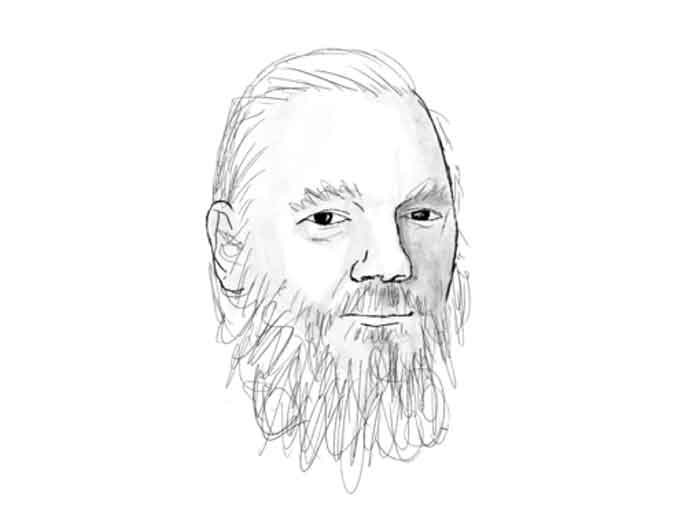
With December’s High Court decision to overturn the lower court ruling against the extradition of Julian Assange to the United States, lawyers of the WikiLeaks founder immediately got busy. The next avenue of appeal, strewn less with gold than obstacles, would be to the Supreme Court. The central question remained: Should the publisher be extradited to face 18 charges, 17 of which use the bricks and mortar of the US Espionage Act of 1917.
This raised the thorny issue of whether a direct appeal to that body against the High Court finding would be permitted. Ease and smoothness were unlikely to be permitted – judges are not necessarily in the habit of clearing the thick undergrowth that presents itself in appellate proceedings. Doing so would have allowed all points of law raised by Assange to be considered, a dangerous prospect for the establishment fogeys.
Defeated by District Court Judge Vanessa Baraitser’s ruling on January 4, 2021, an unphased US Department of Justice appealed, furnishing the High Court of England and Wales with after-the-fact assurances that they claimed Baraitser could have sought. Assange, it was promised, would not be subjected to Special Administrative Measures, or be sent to the vicious ADX Florence supermax facility. He would also receive sufficient medical attention to mitigate the risk of suicide and could serve the post-trial and post-appeal phase of his sentence in Australia. Each one of these undertakings were made subject to the conduct of the accused, ignoring the point that discretion at the hands of the authorities remains total.
The Lord Chief Justice of England and Wales Ian Burnett, and Lord Justice Timothy Holroyde, in their December 2021 decision, did “not accept that the USA refrained for tactical reasons from offering assurances at an earlier stage, or acted in bad faith in choosing only to offer them at the appeal stage.” There was “no basis for assuming that the USA has not given the assurances in good faith.” And Assange had little reason to fear having his suicide risk exacerbated, given reassurances that he would not be subjected to SAMs or be sent to ADX Florence.
Journalist Mohamed Elmaazi, who was present to cover the short proceeding, boiled down the issue to the following: “in what circumstances can an appellate court receive [diplomatic] assurances which were not before the court at first instance in extradition proceedings.” Immediately, the more forensically minded would be troubled. Surely, the Assange case, a matter of politics and important publishing, is far more than hot air assurances floating across the Atlantic from Washington on his future treatment?
Assange’s legal team had submitted in countering the prosecution case that, “The introduction of fresh ‘evidence’ in support of an appeal against an adverse ruling, in order to repair holes identified in that ruling, is generally prohibited.” There were also “profound issues of natural justice” where “assurances are introduced by the requesting state for the first time at the High Court stage.”
The defence further questioned the “legality of a requirement on judges to call for reassurances rather than proceeding to order discharge”. The High Court bench had looked darkly at Baraitser’s failure to notify the US government that she intended to discharge the case against Assange, thereby giving the signal to the prosecutors to make those “assurances”.
In a short ruling on January 24, Lord Burnett kept it thin and narrow. “Assurances [over treatment] are at the heart of many extradition proceedings.” The High Court had refused permission for an expansive appeal but a decision as to whether the case needed to be heard by the Supreme Court was “a matter appropriately for its decision”.
This was polite language to say that the higher-ups can evaluate the case, if they choose to do so, but only on prescribed terms. Restricting the scope of the appeal to examining the purported undertakings by the US, the sort of diplomatic gloss that can only ever be taken at face value, ignores the less savoury aspects of the case. The goons of the CIA have contemplated Assange’s abduction and assassination. A good deal of the case against him is fabricated, the feverish imaginings of former WikiLeaks volunteer and confidence trickster Sigurdur “Siggi” Thordarson. Assange has been the victim of constant surveillance, also at the behest of US intelligence operatives.
Stella Moris, Assange’s partner, felt some reason to be satisfied. “The High Court certified that we had raised a point of law of general public importance and that the Supreme Court had good grounds to hear this appeal.” But human rights advocates such as Massimo Moratti of Amnesty International expressed concern by the pruning of the remit. The High Court had “dodged its responsibility” in refusing to permit an airing of all issues of public importance before the Supreme Court. “The courts must ensure that people are not at risk of torture or other ill-treatment. This was at the heart of the two other issues the High Court has now effectively vetoed.” Rhetorically, he added: “If the question of torture and other ill-treatment is not of general public importance, what is?”
Given that Assange’s treatment as a prisoner has been nothing short of disgraceful, a torturous measure designed to keep him confined either in the UK as his health fails or in readiness for future extradition, the issue if ill-treatment is not in doubt. To have enabled his legal team to spray the ample legal ammunition in appeal would have cast the UK legal system, and the policy of the US government, in the meanest, most venal light.
Dr. Binoy Kampmark was a Commonwealth Scholar at Selwyn College, Cambridge. He lectures at RMIT University, Melbourne. Email: [email protected]













































